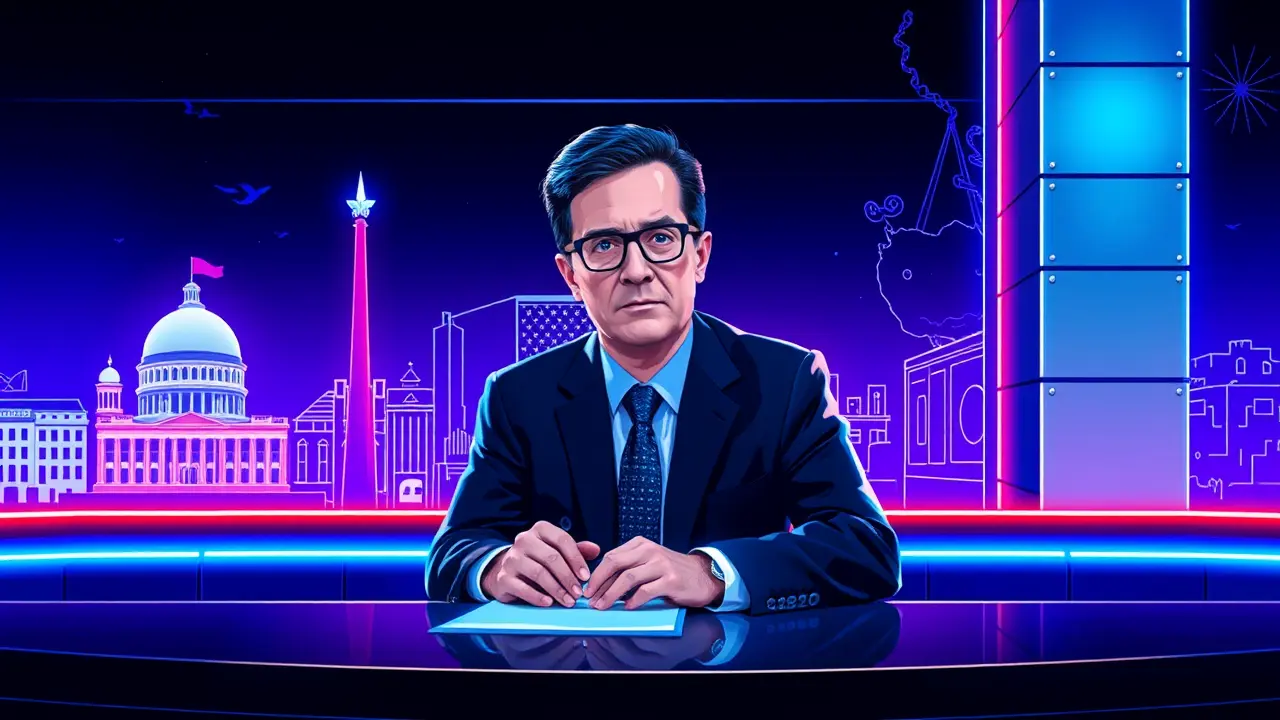
Entertainmenttv & streamingLate Night Shows
Stephen Colbert says he is more conservative than perceived.
MA
Mark Johnson
6 hours ago7 min read2 comments
In a political landscape increasingly defined by rigid ideological camps, Stephen Colbert, the longtime host of 'The Late Show,' has launched a strategic counter-narrative, asserting that he is 'more conservative than people think. ' This isn't a sudden pivot or a calculated rebrand; it's a clarifying shot across the bow in the ongoing media wars.Colbert, a figure often cast as a standard-bearer for the liberal late-night bloc, framed his position not as a matter of core philosophy but of circumstance, telling his audience, 'People perceive me as this sort of lefty figure. I just happen to be talking about a government in extremis.' This single sentence is a masterclass in political jujitsu, reframing criticism of his content from partisan bias to a patriotic response to governmental failure. It’s a move straight out of the campaign playbook: when your opponent tries to define you, you must aggressively redefine yourself.For years, Colbert’s monologues have served as a nightly opposition research dump against the Trump administration and the MAGA wing of the GOP, making him a villain on right-wing media and a hero to the left. But his recent comments suggest a deeper, more Burkean conservatism—one that values institutions, norms, and stability over revolutionary fervor, whether it comes from the left or the right.This aligns him with a tradition of conservative thought that is currently embattled within its own party, a tradition that views the chaos of the post-2016 era with profound alarm. The strategic genius of Colbert’s statement is that it puts his detractors in a bind.If they continue to attack him as a radical leftist, they must now also argue that defending democratic norms and the peaceful transfer of power is a fundamentally left-wing position—a difficult case to make to the broader American electorate. Polls consistently show that while the parties are divided on specific policies, there remains a broad, cross-ideological consensus on foundational principles like the rule of law.Colbert is effectively seizing that center ground. He’s not adopting progressive policy platforms; he’s positioning himself as a defender of a system under existential threat.This mirrors the rhetoric of figures like Liz Cheney or the late John McCain, who placed country over party in their final political acts. The consequence of this reframing could be significant.It allows Colbert to appeal to disaffected moderate conservatives and independents who feel politically homeless, expanding his audience beyond the coastal liberal base. Furthermore, it elevates the political discourse on his show from mere comedy to a more substantive critique, granting his barbs a greater weight.In the high-stakes arena of public opinion, where every word is dissected and weaponized, Colbert has just executed a flawless flanking maneuver. He hasn’t changed his targets; he’s changed the entire premise of the debate, forcing a conversation not about his politics, but about the health of the republic itself.
#Stephen Colbert
#late night
#talk show
#politics
#conservative
#interview
#featured
Stay Informed. Act Smarter.
Get weekly highlights, major headlines, and expert insights — then put your knowledge to work in our live prediction markets.
Related News
© 2025 Outpoll Service LTD. All rights reserved.
